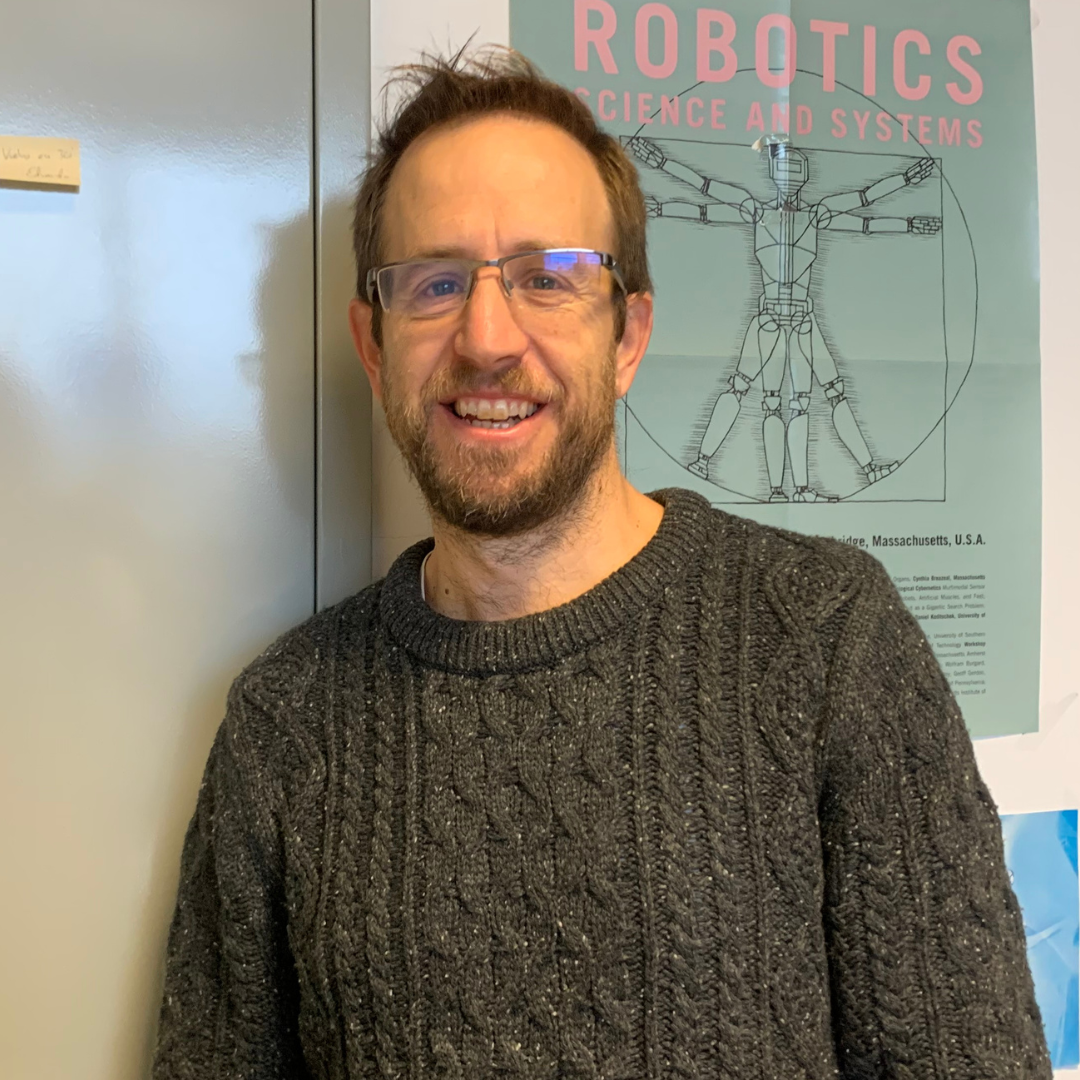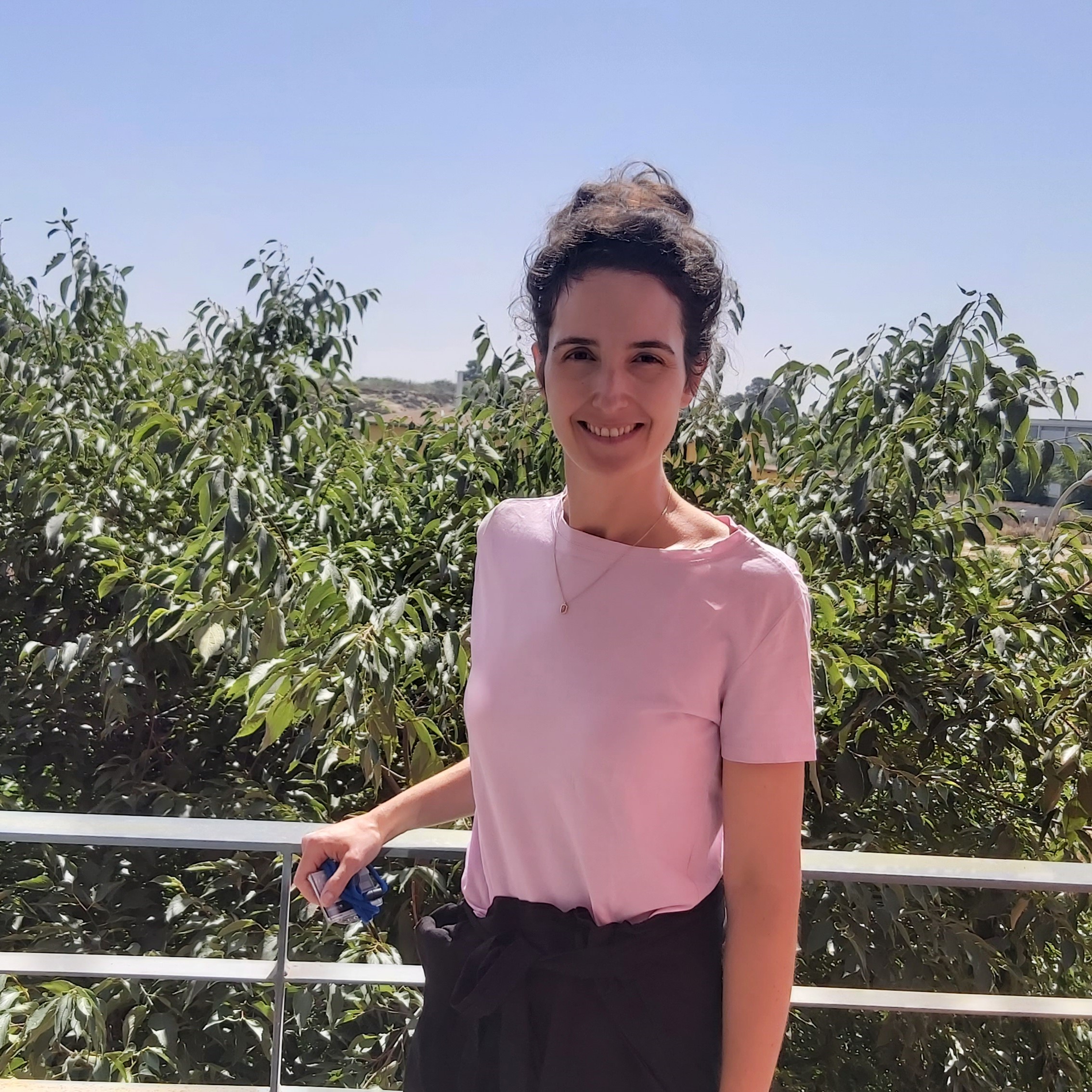
Why did you decide to go into research?
I came to research a bit by rebound. When I finished my degree, I started working in a company and I realised that this was not my path. I had always been drawn to teaching, so when the opportunity arose for an associate professorship at the university, I decided to give it a try. While I was at university, I started working on research topics that I saw that I liked and, thanks to that, here I am.
Was it always clear what you wanted to do?
Not really. When I decided what to study, I hesitated between Medicine and Engineering, and in the end I opted for Telecommunications Engineering. However, it was precisely research and my doctoral thesis that allowed me to combine both fields, as I am currently working in Biomedical Engineering.
How long have you been linked to the I3A and what would you highlight about the Institute?
Since I started, since I finished my degree in 2002, which is when the Institute was founded. When I was doing my thesis, I was obviously not a member of the I3A because I was not a doctor, but I have always been linked to the Institute.
Of the I3A, I would mainly highlight the services it provides to researchers. In our group, BSICoS, we mainly use, for example, the computing cluster, which is the tool that is most useful to us. In addition, I think it is an environment that fosters collaboration between researchers, although it is true that I think there is a lack of this, also on our part.
In your research group, what are your most important lines or areas of work?
Our research group is quite large, so each of us senior researchers is responsible for certain lines of research. However, one of the things I really like is everything that brings us together and allows us to collaborate scientifically.
In particular, I am responsible for the line of research associated with respiratory research. My research has been focused on the pulse photoplethysmographic signal, and I collaborate very closely with lines led by other colleagues such as the autonomic nervous system and wearable devices.
Do you have any ongoing projects that you would like to highlight?
I am quite happy with a project we are developing now that aims to help diagnose sleep disorders because they were precisely the lines that I developed during my thesis. At that time, it was more basic research, and now many years have passed, but this project is the continuation of all that work and of what was done afterwards, although we are bringing it a little closer to society, that is, bringing that research and that work closer to day-to-day life in a real way.
How do you see the future of your research area, and are there any trends or challenges that you find particularly interesting or important?
Our research has always been in hospital clinical settings with physicians. And now, what I think there is a certain trend with all the boom of wearable devices to monitor outside hospitals. This has different characteristics, it has great potential because it allows you to reach many patients in a simple way, but the quality and the environment is not the same, so the context changes. In fact, in the group we are orienting our research in this direction, without forgetting the more clinical part and moving towards the more translational part of reaching the general public.
What do you enjoy most about your profession? And what do you enjoy least?
What I like most is freedom, being able to decide what I want to do, what I like, what motivates me. What I like least, the bureaucracy, I would like someone to quantify the cost of all the time we spend on certain things that I think are a bit dispensable.
What would you say to anyone thinking of going into research?
What I always say when a student comes to me asking me about doing a thesis is that they should think about it carefully because it is an important decision. As almost everything in research is long-term, and I understand that it is not for everyone, it depends a lot on your preferences or your vital interests. If you are not sure about it, it is quite a hard road, but if you like it and you are passionate about it, I always encourage you.
I look back and I have no regrets about the day I made the decision to dedicate myself to research. So, I think you have to be fairly clear about it, because when you start you don't know how things are like, that is the reality, but it is an important decision, especially because it is a long-term one.
CLOSE UP…
What did you study? Telecommunications Engineering and I did my thesis in Biomedical Engineering.
A dream to fulfill: Climbing the Matterhorn.
Hobbies: Mainly to be with my family, now mainly with my little son. I spend a lot of time with him, which I love. On the other hand, on a slightly more personal level, what I love is mountaineering and climbing.
A book: The Lord of the Rings. It was the book that got me hooked on reading as a teenager.
A film: The Green Mile
Favourite singer: Amaral and Ismael Serrano
A trip: I would love to go to Iceland.
How would you define yourself: I am a constant, hard-working and also transparent person.
